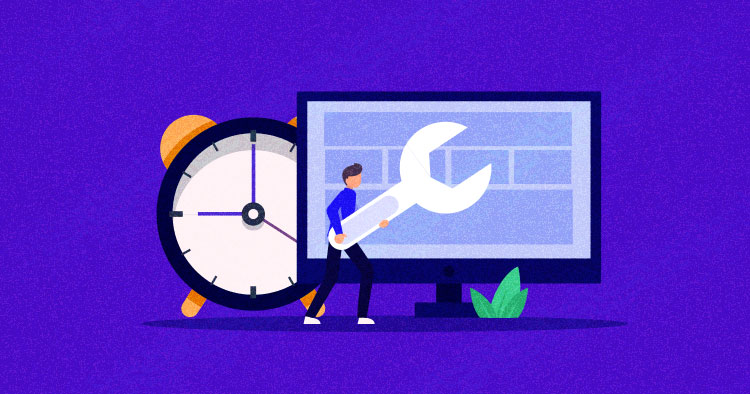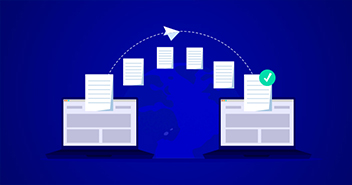
Known for its user-friendly nature, PHP regularly introduces significant changes with each update, and version 8.3 is no exception.
Each new PHP version comes with a specialized feature set aimed to support the users and provide them with a seamless user experience. For example, PHP 7’s speed optimization update helped gain higher rankings on the SERPs, and PHP 8 revolutionized how programmers work.
Continuing its legacy, PHP surprised enthusiasts with the release of PHP 8.2 on November 24, 2022. Now, we have PHP 8.3, released on November 23, 2023.
PHP 8 lets you write concise code and build more exemplary applications with exciting changes and improvements to the earlier RFCs. Considering the new improvements, it would be a crime not to upgrade your current PHP version to PHP 8.3 on your WordPress site.
This blog focuses on upgrading a WordPress website to PHP 8.3 using the Cloudways platform. Currently, Cloudways offers PHP 8.2, but the platform will soon support the upgrade to PHP 8.3.
Before we jump towards the steps to upgrade your PHP’s latest version on WordPress, we will give a brief PHP 8.3 overview to help you get acquainted with the update.
- PHP 8.3 – An Overview
- PHP 8 Compatibility With WordPress
- PHP 8 on WordPress: Installation Prerequisites
- How to Update PHP to the Latest Version in WordPress on Cloudways?
- PHP Supported Versions on WordPress
- What Is Holding Back Users From Updating to PHP 8.2?
- Why Should You Upgrade to PHP 8?
- Disadvantages of Using Older PHP Versions on WordPress
- Final Thoughts
PHP 8.3 – An Overview
PHP (an acronym for Hypertext Preprocessor) is a popular open-source scripting language used by coders worldwide for web and application development. This high-level programming language is easy to learn, hence preferred by starters and novice coders. Still, it is also complex enough to cater to the needs of a professional programmer.
PHP 8.3, the most recent PHP update, introduces new features, functions, and methods for PHP developers. It includes explicit typing of class constants, deep cloning of readonly properties, and enhancements to randomness functionality. Alongside these additions, PHP 8.3 brings performance improvements, bug fixes, and general cleanup.
Previously, PHP had released 8.2 in November 24, 2022, ending the support of PHP 7.3. Currently, PHP supports only 8.0, 8.1, 8.2 and 8.3 versions.
Managed WordPress Hosting Starting From $11/Month
Experience enhanced performance, constant availability & 24/7 support with PHP 8.2 on Cloudways.
PHP 8 Compatibility With WordPress
With every update come compatibility issues. If you want to have a hassle-free PHP 8 experience, we recommend opting for the latest WordPress version 6.4.
If your website is running on an older WordPress version and you’re concerned about potential errors during an upgrade, there’s no need to worry. Cloudways offers a staging environment where you can test your website, ensuring a smooth transition before upgrading your live website to a newer WordPress version.
If you get any errors in the staging environment, then we’d recommend getting the help of a professional WordPress developer to diagnose and debug the errors before you move ahead with the update.
PHP 8 – Themes & Plugins Compatibility
Every change comes with its challenges, and PHP 8 is no exception. While PHP 8 brings extensive features to enhance user experience, it can lead to compatibility issues with themes and plugins.
It’s important to note that the blame doesn’t lie with PHP; rather, themes and plugins need to be updated to align with the latest software versions. If your favorite plugin or theme is causing problems with PHP 8, consider the following solutions:
- Rollback to the previous PHP version (though it may be a less exciting option).
- Contact the support team of the theme or plugin to address compatibility issues for a smoother experience with the latest versions.
PHP 8 on WordPress: Installation Prerequisites
Before upgrading to latest PHP version, it’s wise to check the current PHP version that your WordPress site is running.
Using an older version?
You can upgrade the PHP version to enjoy the new features and improvements. But not so fast! Remember, safety always comes first. When we talk about security, we consider the “what ifs.”
What if your site is not compatible with the latest version, and you end up losing or corrupting your data in the process. Nope, you don’t want that.
Don’t lose hope – With Cloudways, you can create a clone of your website to test it on the latest version.
If the clone website works smoothly after upgrading to the latest PHP version, you can move ahead with updating your actual site. This portion will list out the steps to create a clone website to test it under PHP 8.2 (currently the latest version of PHP on Cloudways).
Clone a Website via Your Web Hosting Provider
Fortunately, managed WordPress hosting solutions like Cloudways allow users to create their site’s duplicate without dealing with any complexities. Follow the steps below to create your website’s clone via Cloudways.
- Log in to Cloudways with your credentials.

- Locate the application you want to clone and click the 3 vertical dots next to it.
- Select “Clone App/Create Staging” from the options.

- Choose a server for the clone application and checkmark the option to create it as a staging site. Then, click “Continue.”

- Wait for the system to check the requirements for your staging application.

- After approximately 2 minutes, your cloned app will be ready.
- Look for the “www” icon next to the server you selected, and click on the staging site.

- Now, you are all set to experiment and make changes to the clone application.
Note: Clone App and Create as Staging are different functionalities. Clicking Clone App will only clone your website. Whereas, Create as Staging will sync the live and staged applications to allow you to perform Push/Pull actions on both the replica and live versions.
Simplified PHP Hosting on Cloudways
Effortless 1-click launch, SSD speed, and optimized stack. Experience secure and streamlined PHP hosting with Cloudways.
How to Update PHP to the Latest Version in WordPress on Cloudways?
Cloudways announced its availability of PHP 8 soon after PHP’s official release, maintaining its reputation of being the early bird to accept the latest updates and providing the best PHP hosting.
Follow the easy steps below to upgrade your current PHP version to the latest one.
Note: Cloudways recommends keeping a backup of your server before upgrading to a newer PHP version. Keeping a backup will help you restore your application if you feel the need to revert to your previous PHP version anytime in the future.
Step# 1: Log in with Cloudways
- Signup on Cloudways. Already have a Cloudways account? Log in with your credentials.

Step# 2: Select Server
- Click on Total Servers.

- Select the server of your choice.

Step# 3: Upgrade Your PHP Version
- Click on Settings & Packages on the left side.
- Click on the Packages tab.
- Click Modify on the PHP box and select 8.2 from the drop-down.

- The setup will prompt you with a warning to ensure that your application is compatible with the selected PHP version. If yes, then click OK.

- The setup will take a few minutes to finish, and it will notify you once the update is done. After getting the notification, you can enjoy working with the latest PHP version.

- There you go! Your PHP version has been upgraded to PHP 8.2 which is currently latest available version on Cloudways at the moment.

PHP Supported Versions on WordPress
WordPress supports the following three PHP versions ranging from PHP 8.1 to the latest version 8.3.
- PHP 8.1
- PHP 8.2
- PHP 8.3

Note: Keep in mind that you won’t receive any PHP security updates if you are not using the latest PHP version. We recommend using the latest PHP version.
What Is Holding back Users From Updating to the Latest PHP Version?
The major reason that’s holding back users from upgrading to PHP 8 is the incompatibility of their favorite themes and plugins with PHP 8.
That said, every savvy user would like to enjoy the latest PHP features and RFC improvements. Anyone who wants to stay back and keep working with the legacy software would abstain from upgrading their PHP version.
Using the latest PHP versions allows for better and easier development of new features and also facilitates maintenance. Even if some of the themes and plugins are not working on the latest PHP version, they will eventually be updated.
Managed WordPress hosting for a seamless PHP experience!
Spend your precious time building and marketing your brand, letting Cloudways handle all your hosting technicalities. Boost performance results and rank better.
Why Should You Upgrade to PHP 8?
Imagine using an outdated image editing tool for making logos or editing photos. While the world has moved to the latest version and is saving time and getting better quality and performance with the latest edition, you are still doing it the old way. Not really a smart decision, right?
Similarly, why would anyone abstain from upgrading to a newer PHP version when the new upgrade is specifically introduced to bring ease to the user’s end? You should definitely upgrade to latest PHP version if you want to benefit from the latest features and get better error handling, improved RFCs, and optimizations.
PHP 8.3 will have active support and security updates planned through 23 Nov 2025. This longevity makes this newest version a lot more trustworthy and secure than the previous versions.
Most of the popular WordPress plugins and themes have accepted PHP 8 and are now compatible with it.
We ran a loader test to check PHP 8’s performance on the Cloudways server and deduced the following results:

The average response time for the same WordPress website is 164 ms, and the total success response counts are 3836.
Currently very few WordPress sites are using PHP 8.3. As per our experience, WordPress delivers the best performance with PHP 8.3 and gives better speeds than the previous PHP versions. It’s a good practice to use the latest versions, so the number of people migrating from 7.4 to 8.0 is gradually increasing with time.

~ Image Source: w3techs
PHP has worked on the issues reported by the users in the previous versions, and the latest version is free from many recurring problems and has introduced new features.
To enjoy the services at their full potential, you will have to upgrade to the newest WordPress PHP version, as the older versions may eventually fade out or will be declined by most themes and plugins.

~ Image Source: PHP Supported Versions
Disadvantages of Using Older PHP Versions on WordPress
All PHP versions before 8.0 have reached their end of life, and it is advised to upgrade to the latest version if you are using any of the older versions, as it will make you vulnerable to unpatched security errors. Even 8.3 will reach the end of life on 23 Nov 2025.
Why would you risk your website to security vulnerabilities when you can easily upgrade to the latest version and enjoy the new improvements and features?
Also, ensure that you opt for a secure WordPress hosting provider to safeguard your sites from malicious traffic, DDoS attacks, and malware.
Using older PHP versions won’t only provide security issues but also will affect your website’s performance.
Which sane person compromises performance in this competitive era, where everyone is following the best practices to boost their site’s performance and gain their user’s attention?
Improve your website’s performance and security by halting the usage of older PHP versions, and upgrade your WordPress website’s PHP version to 8.3 to maximize safety and performance.
Scale Smarter with Cloudways Autonomous
Let Autnomous’ smart scaling, lightning-fast speed, and rock-solid security push your business to new heights.
Final Thoughts
This blog covers PHP 8’s compatibility with WordPress and the steps to upgrade your PHP version to latest. The information shared in this guide will help you make the right decision to upgrade to PHP 8.2 (currently latest on Cloudways) on your WordPress site and enjoy the benefits of the newest update.
Ranging from the supported versions, the disadvantages of using the old PHP version, and the reasons to upgrade to the latest version, we have tried to cover it all. Still, if any questions are popping up in your head, please feel free to comment with your queries. We will answer all of them ASAP.
Can WordPress use PHP 8?
Yes, WordPress can use PHP 8, and it is recommended to use PHP 8.3 with WordPress 6.4.2 for compatibility and better performance.
If you are using an older WordPress version, you can test your site with WordPress 6.4 in a staging environment. If you don’t experience any issues, then upgrade your live WordPress site to enjoy using PHP’s latest version on WordPress.
Is WordPress compatible with PHP 8?
Yes, if you want to benefit from the latest features, better error handling, improved RFCs, and optimizations, you should upgrade your PHP version to PHP 8.
Should I upgrade to PHP 8?
Yes, if you want to benefit from the latest features, better error handling, improved RFCs, and optimizations, you should upgrade your PHP version to PHP 8.
What version of PHP should I use for WordPress?
We recommend using PHP 8.3 if you are using WordPress 6.4. The oldest PHP version that we recommend using with WordPress is PHP 8.0.
Sarim Javaid
Sarim Javaid is a Sr. Content Marketing Manager at Cloudways, where his role involves shaping compelling narratives and strategic content. Skilled at crafting cohesive stories from a flurry of ideas, Sarim's writing is driven by curiosity and a deep fascination with Google's evolving algorithms. Beyond the professional sphere, he's a music and art admirer and an overly-excited person.

